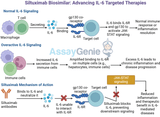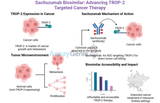COVID-19 Workplace Testing
Workplace Testing for COVID-19
Corporate Testing for COVID-19
The impact of COVID-19 on the economy has been staggering. Current projections imply that the effects of the viral outbreak will be felt for some time. Low cost, high throughput testing has the potential to help institutions and individuals make the best choices for themselves and others.
Simple, point of care assays are the best option for workplace testing. Lateral flow immunoassays are a particularly good choice because they require minimal laboratory equipment and can yield results in as little as 15 minutes. In addition, tests such as this can detect the presence of multiple antibody isotypes, notable early-stage IgM and late stage IgGs. Serological tests yield accurate, reproducible results, and their ease of use and potential for mobility make them an attractive option for corporate testing.
Data has shown that antibodies can be detected in serum as early as one week after symptom onset. From two weeks after onset, SARS-CoV-2 antibodies were reported to be detected in 100% of patients. IgG antibodies against SARS-CoV-2, the causative viral agent of COVID-19, are thought to persist in the body for some time, although the concentration and duration of their longevity is not currently known.
Fig 1. A schematic of the COVID-19 lateral flow immunoassay test.
Immunity Passports & Immunity Certificates for COVID-19
High throughput, low cost testing is the key to helping the wounded world economy to recover. By allowing people who have developed immunity to begin working again, countries and companies can begin to mitigate the damage the virus has caused. The concept of issuing an immunity passport to people who have contracted and recovered from COVID-19 has recently received much attention. ‘Immunity passports’ or ‘immunity certificates’ as they have been called, would ostensibly use serological testing to provide verification that an individual has had the disease and is no longer able to contract and spread it. Such information is especially valuable for workers in essentials businesses, such as hospitals, pharmacies, or places where food is sold. Having staff who are cleared as immune reduced the chance of asymptomatic transmission.
Immunity passports could also become a proxy measurement for herd immunity. The number of immunity passports granted would trend with the number of individuals who have recovered from COVID-19, and could provide more data on the course of the disease and the speed in which different populations recover. One key variable in this is the length of immunity. It is crucial that data be gathered on the length of time antibodies remain detectable in serum after recovery from COVID-19. Similarly, it is important to obtain information on whether humans can contract the virus more than once. Anecdotal reports have varied, but one promising study in rhesus macaques reported that non-human primates who had recovered from SARS-CoV-2 infection could not be infected with the virus again.
R0 and Herd Immunity in COVID-19
Herd immunity for COVID-19, namely the percentage of people who must be immune from the disease in order to confer adequate protection to vulnerable groups, would likely require almost than 90% of people to be immune from the disease. The R0 ( the basic reproduction number, which represents a measure of infectivity in a population where no one is immune) for COVID-19 is reported as between 3.8–8.9 for respiratory droplet transmission (the most common method of exposure). For context, measles has an R0 of 12–18, and the common cold of 2–3, and both diseases are generally spread through airborne droplets as well. Larger values of R0 imply a disease that is more likely to spread and harder to control. Using the simple model of effective immunisation percentage, herd immunity for COVID-19 would begin at about 89% for the highest R0 estimates (1 - (1/8.9)).
Thus, understanding what percentage of the population is immune is a key consideration. Serological testing for the presence of IgM or IgG antibodies can help organisations to determine the levels of risk each individual faces. COVID-19 testing for employees can help put the minds of workers and the public to rest, especially in critical areas such as hospitals, pharmacies, and grocery stores.
The effects of the novel coronavirus on the workplace and daily life are unprecedented in the current era. Not since the last world war has there been such restriction on movement. However, with proper testing and adherences to government guidelines, we will recover.
COVID-19 (SARS-CoV-2) Resources
COIVD-19 Information
Recent Posts
-
Tigatuzumab Biosimilar: Harnessing DR5 for Targeted Cancer Therapy
Tigatuzumab is a monoclonal antibody targeting death receptor 5 (DR5), a member of the …17th Dec 2025 -
Siltuximab: Exploring IL-6 Inhibition in Castleman’s Disease and Research
Quick Facts About SiltuximabWhat is Siltuximab?Siltuximab is a monoclonal antibody tar …16th Jan 2025 -
Sacituzumab: Exploring its Role in Cancer Research and the Rise of Biosimilars
Key Facts About SacituzumabWhat is Sacituzumab?Sacituzumab is an antibody-drug conjuga …16th Jan 2025



